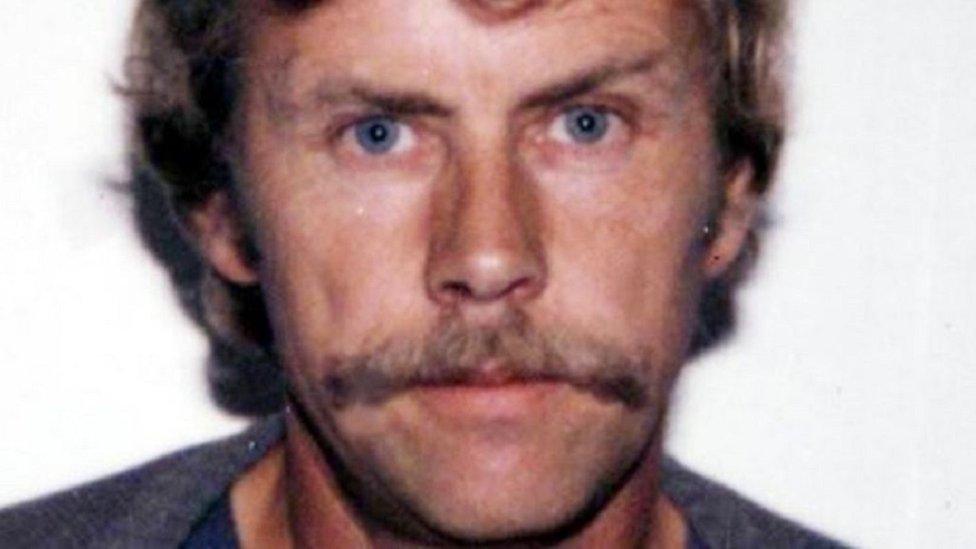David Caldwell family fear they will never get justice
- Published

David Caldwell was killed after picking up a lunchbox packed with explosives in 2002
The daughter of a man killed by a Real IRA bomb in 2002 has said she fears that her family will never get justice.
David Caldwell, a former UDR soldier, died after picking up a lunch box packed with explosives at a Territorial Army base in Londonderry in August 2002.
The 51-year-old father of four had been involved in refurbishing facilities at Caw camp on the Limavady Road.
Mr Caldwell later died from his injuries at Altnagelvin Hospital.
Speaking to BBC Radio Foyle, Mr Caldwell's daughter, Gillian McFaul, who was 14 when her father was killed, said the past 20 years had been extremely difficult.
"People say it gets easier, but it doesn't, it definitely doesn't because it's always in the back of your mind," she said.
"A normal death is hard to deal with, but somebody murdered belonging to you is a lot worse."
The mother-of-two said she "lost her teenage years" as a result of her father's killing, and described having "a real hatred" for a long time.
'Like to see justice'
"I used to have a real hatred in me, but I learnt hatred is not something you can let eat up inside you - hatred gets you nowhere.
"I don't have hatred towards the person (or people) anymore, but I would still like to see justice.
"I don't think we'll ever get justice, I really don't think we will, you always hope you do but it's not something I think will ever be put to bed."
In a statement, a Police Service of Northern Ireland (PSNI) spokesperson said it remained committed to deliver truth and justice to victims, survivors and their families within the resources it has available.
"I fully appreciate and acknowledge the pain and suffering still being experienced by the Caldwell family.
"They have suffered as a result of the Troubles and, understandably, they continue to seek answers.
"The investigation into David's murder currently sits within the current caseload of the Legacy Investigation Branch and will be the subject of a further review in accordance with LIB's case sequencing model."